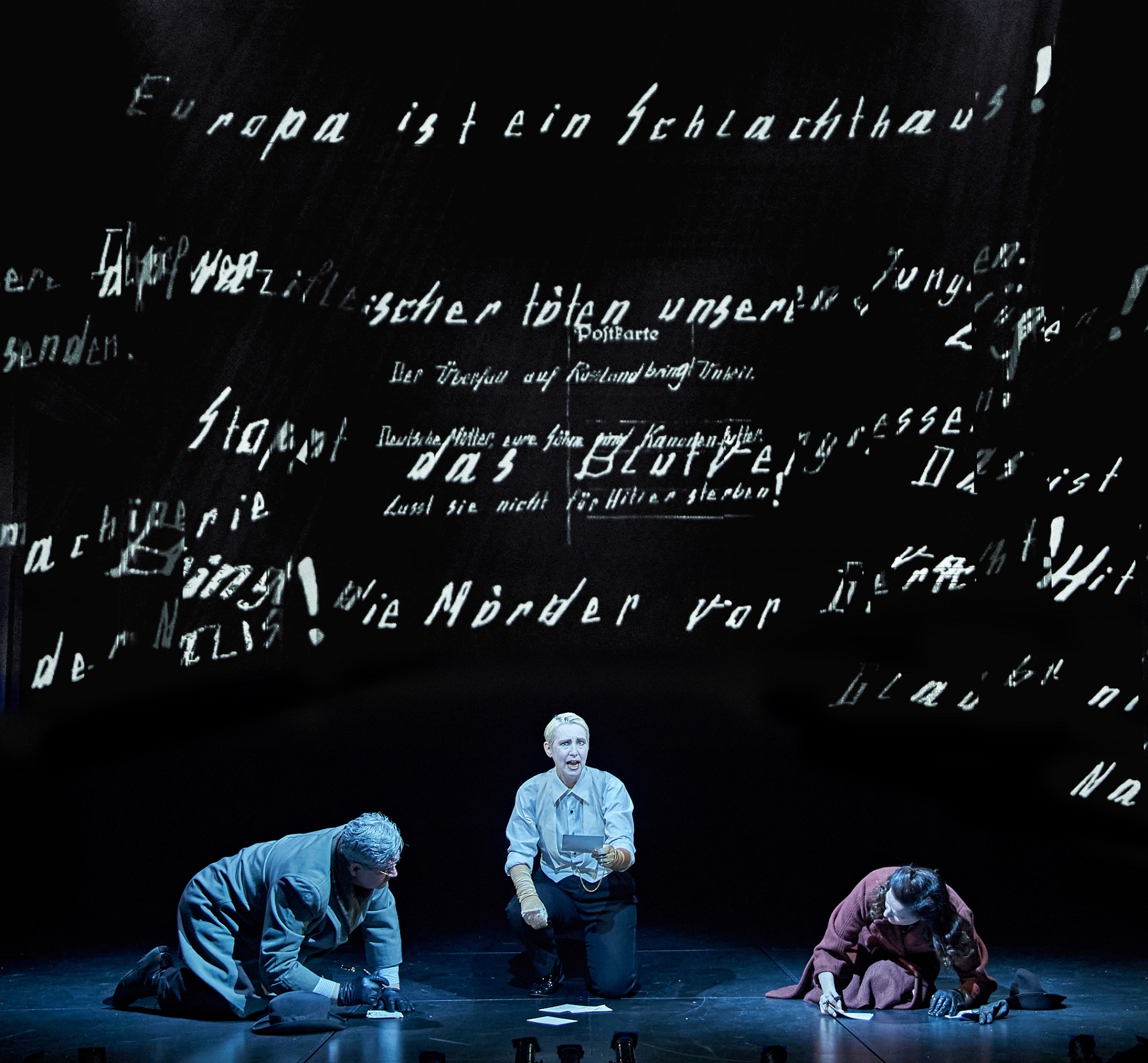More and more these days I am reminded of the prescience of W.B. Yeats’s poem The Second Coming, and particularly the line ‘The best lack all conviction, while the worst are full of passionate intensity.’ Written in 1919, it has an extraordinary correspondence to the rise of fascism in Europe ten years later, and if Hans Fallada’s book, Alone In Berlin, is about anything, it’s about how difficult it is to resist the social hegemony of fascism.
But some people managed it. Fallada’s book is based on the true story of Elise and Otto Hampel, a working class Berlin couple who were killed by the Nazis for distributing anti-Hitler propaganda in the form of hand-written postcards. Fallada found their files in the Nazi archive after the war and used their story, changing their names to Anna and Otto Quangel, to create a vivid picture of working class life under the Nazis.
Well known in Europe (it was published in 1947), the book only surfaced in the UK when a translation was issued by Penguin in 2009. It was an instant bestseller and in 2015 a film was made starring Emma Thompson and Brendan Gleeson as the Quangels. This stage adaptation by Alistair Beaton was commissioned for this co-production by York Theatre Royal and Northampton’s Royal & Derngate.
I tell you all this to demonstrate how unusual and important the Hampel/Quangels’ story is. Unlike most Berliners they refused to live in fear, or to join the party. Instead they resisted, in their own small but finally fatal way. Why? Because their son was killed in the first battle of the war. Charlotte Emerson as Anna Quangel shows us clearly how she transforms her grief into a determination to resist, and inspires the unimaginative Otto (Denis Conway) to join her.
Other characters adapt to Nazism in different ways. Joseph Marcell plays Inspector Escherich, a decent policeman corrupted by association with the SS, and Jay Taylor portras his superior, SS Obersturmfuehrer Fall, a proper Nazi thug to whom the Quangels eventually fall prey. Meanwhile, Klaus Borkhausen, their downstairs neighbour, is a shiftless member of the lumpen proletariat transformed into a born-again Nazi played threateningly by Julius d’Silva. And he has a mate, Benno Kluge, Clive Mendus, whose life is entirely driven by where his next drink is coming from. Hope for the future is in the hands of Trudi Baumann (Abiola Ogunbiyi), their son’s fiancée, who tries to escape to the country, where it will be all right, won’t it? All of these characters are skilfully intertwined in the Quangels’ fate.
The action begins, ends, and is commented on throughout by a sung recitative from Jessica Walker as Golden Elsie, the figure on top of the victory column in Berlin celebrating the three wars that led to unification in 1873. She has a wry yet matter-of-fact perspective.
Everybody in this distinguished cast is very good indeed and Jonathan Fensom’s design is dark and brooding and nicely lit by Charles Balfour, with projections by Nina Dunn. And the story is strong and important. So why do I have my doubts?
I came away thinking the pudding had been over-egged. Somehow the whole was less than the sum of its parts. Maybe it’s just too long. Maybe the Golden Elsie character, an invention of the adapter, just gets in the way. She lends style, an allusion to Cabaret in her white tie outfit, and, I suppose, objectivity in the Brechtian sense of ‘look at what’s happening now’, but in this case it’s unnecessary. The story is objective enough.
The meat of this piece, the really important meat, is how and why does an ordinary person resist an overbearing, corrupted ideology, while all around the rest enthusiastically join in. My remarks above notwithstanding, go and see it – we may need to action this ourselves fairly soon.
By Chris Wallis, Theatre Editor
Images by Manuel Harlan
 Alone in Berlin is at York Theatre Royal until March 21, 2020. For more information, click here.
Alone in Berlin is at York Theatre Royal until March 21, 2020. For more information, click here.







